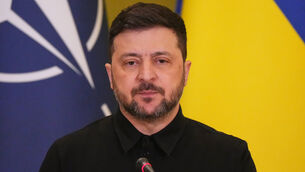Blair signals truce as BBC boss bites bullet
Prime Minister Tony Blair welcomed the apology and said the government could now “draw a line” under the whole episode.
His ex-communications director Alastair Campbell, the most tenacious critic of the BBC, also said he now accepted the affair was over, telling Five News: “I’m sad that it’s taken all this to get a situation where these allegations have finally been withdrawn.”














